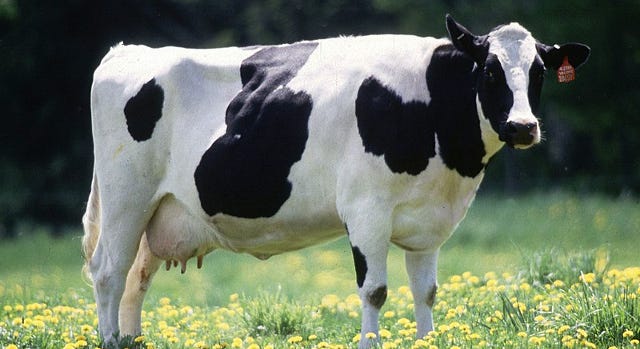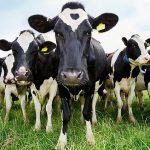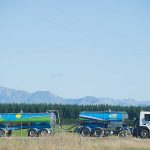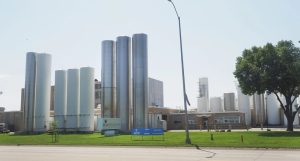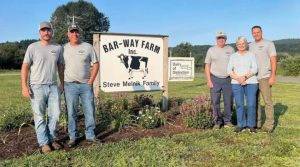
A Hoard’s Dairyman webinar welcomed multiple guests for a panel on dairy and sustainability to show just what dairy farmers have been doing across the globe in the name of environmental conservation and sustainable food supply. They said sustainability includes a lot more than just the environment, though – it’s also about building a sustainable business model for alternative conservation practices.
Guests included Robin White, professor of animal and poultry sciences at Virginia Tech; Marilyn Hershey, dairy farmer and board chair at Dairy Management Inc; Jamie Vander Molen, vice president of sustainability issues and outreach at manure management company Newtrient; and Chris Wolf, agriculture economist at Cornell University.
“Dairy has such an incredible story when we’re talking about sustainability,” White said. “The environmental aspects of dairy sustainability go well beyond just carbon. They include things like our interaction with water, soil, land, biodiversity, ecosystem services. Incorporating all of those elements of environmentalism into our definitions and quantifications of sustainability is really the direction we’re headed.”
White explained that the US dairy industry has a relatively good carbon footprint compared to similar food products. She said a study done at Virginia Tech found that if you removed all dairy cows from the agriculture sector, total greenhouse gas emissions would only go down by about a percent, when most of the time the dairy industry takes the blame for high levels of emissions.
US dairy farmers also provide enough protein to feed more than half of the country’s population while also providing enough calcium for the entire population. White said that the main focus right now should be increasing efficiency where and when we can so as to lower carbon footprints. Plus, with trust in public at an all-time low, we should be taking this opportunity to educate consumers about what dairy is doing.
“The average food consumer doesn’t know … how far this industry has come toward the goal of enhancing sustainable food production and the tremendous opportunities that continue to present themselves within this industry,” White said. “I would argue that it’s actually the perfect time to enter this conversation and be able to tell our story on our terms.”
Hershey, a lifelong Pennsylvania dairy farmer, said there are more opportunities than ever now to increase the implementation of sustainability initiatives, but there’s one problem: cost. Small and even mid-size farms are finding it difficult to not only finance having large equipment like manure digesters, but also finding markets for the products they produce, she said. However, that doesn’t mean farmers aren’t being sustainable.
“We don’t all have digesters, obviously, on our farms, but we all have things that we’re doing – whether it’s streambed fencing, whether it’s no-till,” Hershey said. “There’s a lot of ways that, through the crops (and) through the land, we have the soil quality, we have the manure nutrients that are nourishing the land. There’s all ways that we are helping to be more sustainable on our farm.”
Hershey also said that some feedback she’s received on DMI’s commitment to becoming carbon neutral by 2050 is that they’re putting the cart in front of the horse – but she says that’s the only way to do it because there’s no way to know the answers to everything right now. What really matters, she says, is the commitment itself, regardless of how it’s met.
Being a part of the conversation, and even more so being in charge of it, is what really matters to farmers, Hershey said. She added that being at the front of everything now will lead to change that farmers themselves want to see in the future, rather than leaving it up to some other group that may not put profitability first.
“I want to have a voice at the table. I want farmers to have input on how that gets done. We know that this has to be profitable for farmers,” Hershey said. “As a farmer myself, I don’t want something coming down the pipe that’s going to cost me more money. We all know that that milk check is stretched as far as it’ll go.”
Vander Molen said it’s not enough that dairy has become “less of the problem” and that it needs to become a solution rather than putting responsibility on other sectors in agriculture. She said capturing the value of carbon and using carbon credits are an extremely important investment right now, especially as more markets open up in the realm of profitable sustainability. Renewable natural gas made from cow manure is becoming popular, she said, and farmers need to realize the value.
“You’ve seen a lot of different kind of markets and programs and aggregators pop up over the last couple of years, and it can be complicated and intimidating to navigate,” Vander Molen said. “(But) you need to think about and realize the value that you’re you’re sitting on. There are a lot of things that go into these partnerships in the renewable natural gas space between farms and vendors but it’s a space that’s emerging and growing.”
Farmers need to be hyper-aware of the financial ramifications at stake here though, Wolf said, because farms are capital-heavy businesses that should only take on as much risk as they’re willing to handle. And since some of these markets are only just budding, careful consideration is key. The best thing to do is look for any marketing advantages or opportunities in new sustainability initiatives, Wolf said.
“It’s really important to look for ways not just to meet the standards, but to seek any marketing advantages that there might be,” Wolf said. “Getting the story out there and getting it labeled appropriately and … seeking any additional ways to get compensated for the environmental services is a really important aspect.”
